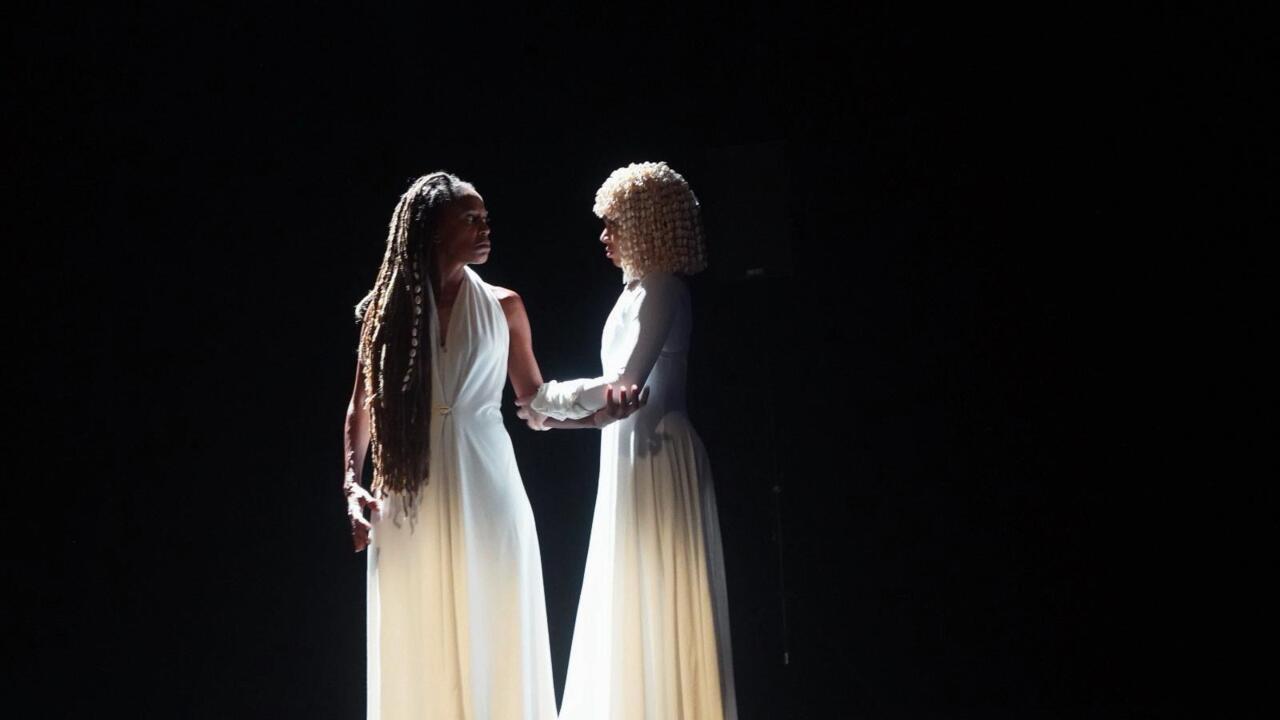Ivory Coast: the myth of Queen Pokou told in a new show
The text is that of a work by Véronique Tadjo,
Reine Pokou.
Concerto for a Sacrifice
, published in 2004. The writer recreates the different versions of a complex, protean myth, where the condition of a woman and the history of a people mix.
New representation on the stage of the history of the Baoulé queen Abla Pokou in Abidjan and Bouaké.
Listen - 02:30
Françoise Dô has directed a play on the story of Queen Abla Pokou.
© Marine Jeannin/RFI
By: Marine Jeannin Follow
Advertisement
Read more
From our correspondent in Abidjan,
Abla Pokou was both an Ashanti princess - present-day Ghana - in exile, the founding queen of the Baoulé kingdom, and an infanticidal mother, who saved her people by sacrificing the crown prince.
A modern figure, for the director Françoise Dô, whose dilemmas still resemble ours: “
How does the story of this woman who came to us through the mouths of griots, replayed through the thought and writing of Véronique Tadjo, can she still speak to us so deeply about a woman's rise to power?
We always encounter obstacles, the notion of the body remains a priority, the body which gives birth, which does not give birth, whether we want it, we do not want it… I wanted to talk about the story of this woman, which I found terribly modern.
»
“
Another dimension
”
Reine Pokou
is an international production for this Baoulé myth, with the director, Françoise Dô, and three actresses, Rita Ravier, Alvie Bitemo and Yasmine Ndong Abdaoui, respectively Martinican, Congolese and Moroccan-Gabonese.
At the end of the performance, singer Ruth Tafebe, herself of Baoulé origin, said she was seduced: “
Abla Pokou is a story that is known in Ivory Coast.
The Baoulé people being central geographically and historically.
But told by people from other cultures, it takes on yet another dimension, and it affirms the universal side of the thing.
Especially since it is done with great sensitivity.
We are with her on stage, by the river.
We are with her when the child is thrown
[into the water, Editor's note].
»
First created in France, in Saint-Etienne, the play was performed in Abidjan and Bouaké, in Ivory Coast.
It should then be represented in Martinique, then throughout mainland France.
Newsletter
Receive all the international news directly in your inbox
I subscribe
Follow all the international news by downloading the RFI application
Share :
Continue reading on the same themes:
Ivory Coast
Culture
Culture Africa
Theater
History
Heritage

